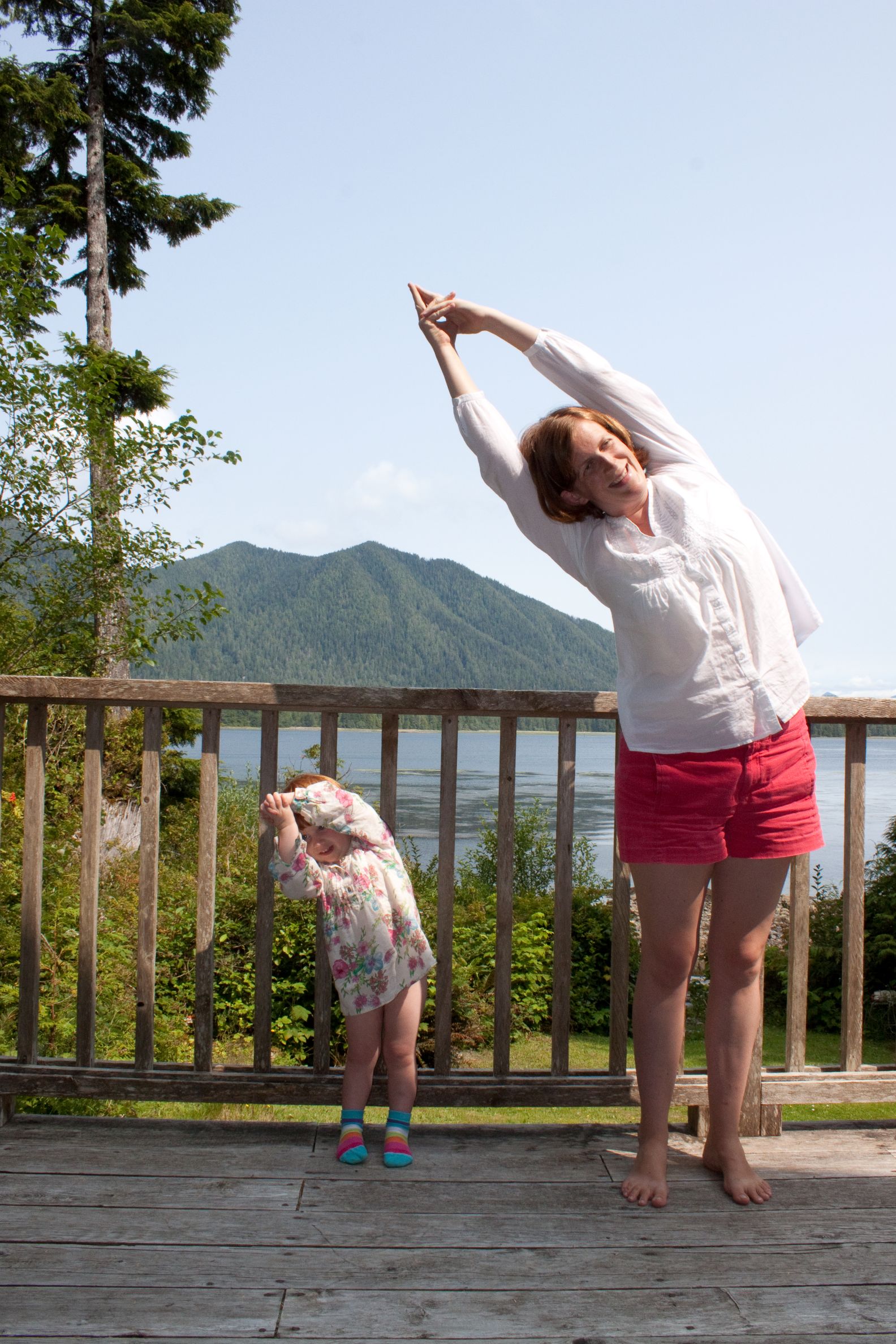Case Study: Dancing the Parenting - Case-Study
Authors(s), Creator(s) and Contributors: Bronwen Wilson Rashad, dance artist and Project Lead, Familia de la Noche
Publication Date: 08/05/2025
Categories: Case Studies
Partner(s): Familia de la Noche, ABUHB Perinatal Mental Health Team, ABUHB Gwent Infant Parent Mental Health Service, Bronwen Wilson Rashad, Deborah Aguirre Jones, Alex Lupo
Funder(s): Arts Council of Wales, ABUHB Perinatal Mental Health Team, ABUHB Gwent Infant Parent Mental Health Service
Introduction
“Thank you for holding space for me to let go and feel myself again. To move my body without shame and express my emotions without judgement.”
(Participant 1, ‘Thank You’ writing, 25th March 2025)
Dancing the Parenting ran from October 2024 until March 2025. This was a collaboration between the Aneurin Bevan Health Board Perinatal Mental Health Team, Gwent Infant Parent Mental Health Service and Familia de la Noche Theatre Company. The project consisted of 21 sessions run for women who were current service users. Attendance was optional and there was no cut off point for joining the group. The sessions had a focus on movement and dance, led by Bronwen Wilson Rashad, with musical contributions from Alex Lupo and visual art work by Deborah Aguirre Jones.
The Challenge
Dancing the Parenting built on the work of the Arts and Minds project. This evolution saw a longer project length with an emphasis on co-production and co-evaluation. The transition to parenthood is one in which the link between our minds and bodies is more apparent, as such, dance has a unique role in supporting parents at this moment - we aimed to increase wellbeing of all involved, parents, artists and NHS staff. We explored co-evaluation as a way to embed the values in the quality standards of the Royal College of Psychiatrists: ensuring patients and carers are at the centre of decision-making (Sustainability Principle 2, Lucas, PQN, 2023). The women were involved in decisions over the aims and in assessing the success of this at the end of the project.
The Approach
21 sessions ran between October 2024 and March 2025 for women who were currently being seen by the two clinical teams. Attendance was optional and there was no cut off point for joining the group. The sessions had a focus on movement and dance, led by Bronwen Wilson Rashad, with musical contributions from Alex Lupo and visual art work by Deborah Aguirre Jones.
Each week a support team made up of Bronwen, Laura Bolton (GIPMHS), Barbara Cunningham (PMHT) and then Alex Smith (PMHT) and Tess Copley (student psychologist) facilitated the group. There was always one other member of the PMHT there, and this was rotated through the team on a sign-up basis. Other members of the PMHT that attended included senior clinical psychologists, nursery nurses, and occupational therapists.
We had a consistent attendance from 9 women, averaging at 6.1 per session. In all, 14 women attended at least one session. All the women who were at the last sessions had come to the very first one.
Whilst the focus of this project was on process and embodiment, rather than production, we did make many dance pieces, sculptures and drawings. We also co-created a film made from our artworks. We also kept a creative journal that everyone in the project contributed to.
The budget was: £17,778
The Impact
“I love coming to group, I look forward to a Tuesday morning. I love that being the part of the group enables mums under our care to have time to themselves, to be with others, to learn new ways to be creative, and to also not be viewed as a 'service user'. Something that's really struck me is that no-one is reminded or pointed out as being under PIMHS or PNMHS, they're just mums and babies who gather in a space that's welcoming and joyful.” (Healthcare professional 4, Feedback Survey, 2025)
We set the aims for and evaluated this project collaboratively, doing this in a number of ways: a weekly creative journal, weekly reflective write ups, sense making sessions with everyone involved at the start, half-way through and at the end, and a feedback survey.
Attendance of the group - The NHS teams struggle to get attendance at groups in general, and not only did this group have excellent attendance, attendance at this group led to higher attendance at other groups.
There was an overwhelmingly positive impact on the women and babies mental and physical wellbeing as evidenced in our full report.
It increased wellbeing amongst the artists and led to evolutions in their practice.
It increased wellbeing in NHS staff and changes in perception of service users.
Lessons Learned
Creative and co-evaluation - as a tool for empowering service users in mental health settings was key. However, we do feel we need more concrete quantative data to ensure further NHS investment.
Artists leading on the project was transformational, however we believe that to hold this kind of group you need artists who have additional skills: all three of ours are experienced in mental health settings.
Longer projects led to richer results - building trust and skills within the group.
Streamlining bureaucracy reduced stress and costs.
The Legacy
We are in discussion with both NHS teams on applying for further funding, with the aim to broaden this project into another health board. We have begun talking to academics working in this field on studying the effectiveness of this program to enable us to expand it elsewhere. Further, we are looking at developing a community group on the same principles for the very many women who don't meet the criteria to be seen by either NHS service. This would also provide a community based group for service users once they're discharged.
Website and Social Media Links
Link to our full evaluation report: https://familiadelanoche.com/dancing-the-parenting-evaluation-report
Co-created film made by participants: https://vimeo.com/1069548421/e68e49d13f?ts=0&share=copy
Bronwen Wilson Rashad instagram: @bronwen_wilson_rashad
Familia de la Noche: https://familiadelanoche.com/
Contact Details
Bronwen Wilson Rashad: bronwenwilsonrashad@gmail.com
View "Dancing the Parenting - Case-Study"
Tags: dance, perinatal, perinatal mental health, movement, postnatal recovery, parent, infant, collaboration, creative evaluation, women, mothers, children, clinical staff, NHS, dance artist, postnatal depression, postnatal anxiety, artist wellbeing

